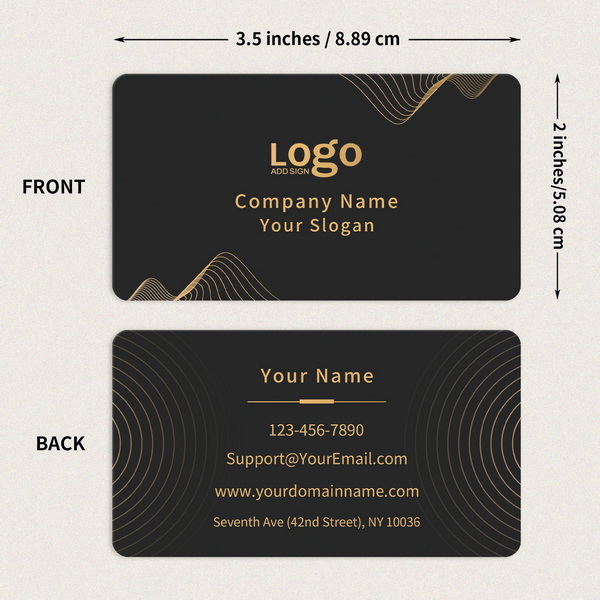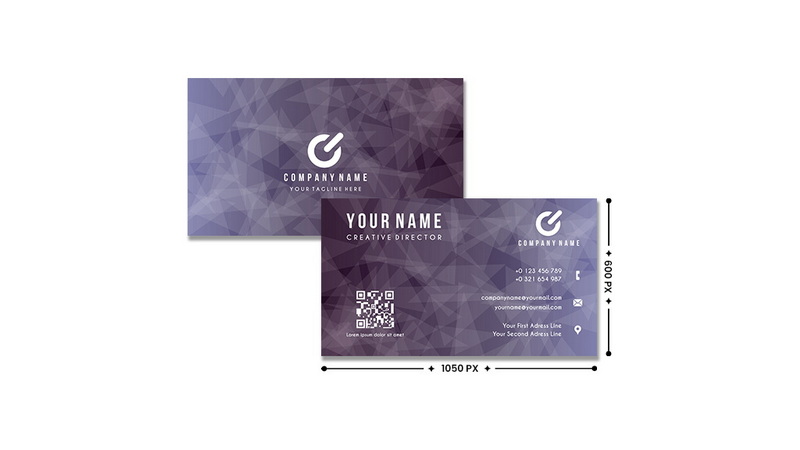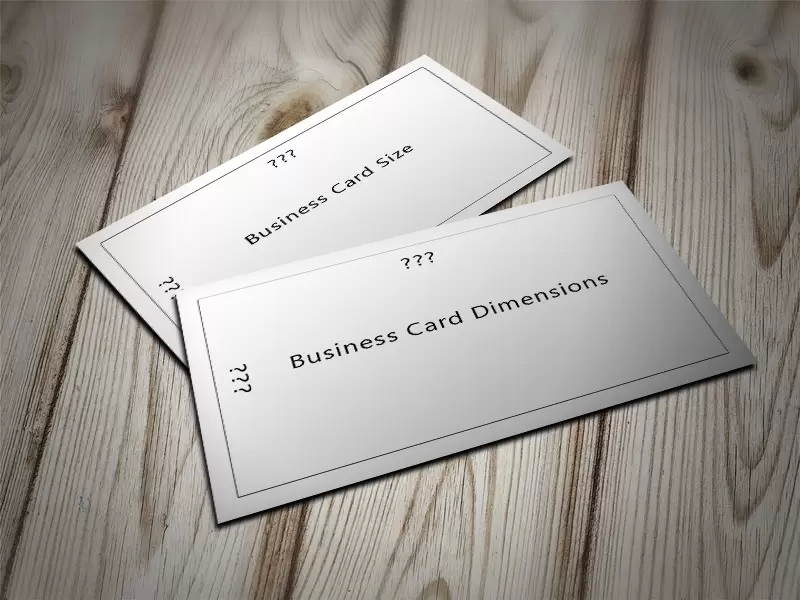Content Menu
● Standard Business Card Sizes Around the World
>> United States and Canada
>> United Kingdom and Europe
>> Japan
● Importance of Business Card Size
● Designing Business Cards
● Business Card Sizes in Pixels
● Non-Standard Business Card Sizes
● Materials and Finishes
● Digital Business Cards
● Environmental Considerations
● Conclusion
● Frequently Asked Questions
>> 1. What is the standard business card size in the United States?
>> 2. What is the standard business card size in the United Kingdom?
>> 3. How do business card sizes vary globally?
>> 4. What is the importance of including a bleed area in business card design?
>> 5. What resolution is recommended for printing business cards?
● Citations:
Business cards are a crucial tool for professionals to introduce themselves and their services. The size of a business card can vary significantly across different regions due to differences in measurement systems and cultural preferences. In this article, we will explore the standard sizes of business cards in various countries, focusing particularly on the size in centimeters.

Standard Business Card Sizes Around the World
United States and Canada
In the United States and Canada, the standard business card size is typically 3.5 inches by 2 inches. When converted to centimeters, this is approximately 8.9 cm x 5.1 cm. This size is widely accepted and fits well into wallets and cardholders designed for these regions. The compact size allows for easy storage and exchange during networking events.
United Kingdom and Europe
In the UK and most European countries, the standard business card size is 85 mm x 55 mm, which translates to 8.5 cm x 5.5 cm. This size is also common in many other parts of the world and is designed to fit neatly into standard business card holders. The slightly larger width compared to US cards provides a bit more space for design elements.
Japan
Japanese business cards are slightly larger, measuring 91 mm x 55 mm, or approximately 9.1 cm x 5.5 cm. This extra width allows for more design space and is culturally significant in Japan, where business card etiquette is highly valued. In Japan, the exchange of business cards, known as "meishi," is a formal ritual that requires respect and attention to detail.
Importance of Business Card Size
The size of a business card is important for several reasons:
- Practicality: Cards need to fit into wallets and cardholders without being too bulky.
- Design Space: The size influences how much information and design elements can be included.
- Cultural Considerations: Different cultures have preferences for card sizes that reflect local business etiquette.

Designing Business Cards
When designing business cards, it's crucial to consider the size and layout carefully. Here are some tips:
- Use Templates: Many design software programs offer templates for standard business card sizes.
- Bleed Area: Include a bleed area to ensure that designs are not cut off during printing.
- Resolution: Ensure high-quality printing by using a resolution of at least 300 DPI.
- Color Mode: Use CMYK color mode for printing to ensure accurate color representation.
- Typography: Choose fonts that are clear and readable, especially for contact information.
Business Card Sizes in Pixels
For digital design, knowing the size in pixels is essential. A standard business card at 300 DPI is typically around 1050 x 600 pixels for a 3.5" x 2" card. However, this can vary based on the specific size and design requirements. Understanding pixel dimensions helps in creating digital versions of business cards for online use.
Non-Standard Business Card Sizes
While standard sizes are common, many businesses opt for unique sizes to stand out:
- Square Cards: Often used for creative industries, these cards are typically 5.5 cm x 5.5 cm. They provide a modern and innovative look that can differentiate a company from competitors.
- Mini Cards: Smaller cards, such as 8.5 cm x 2.5 cm, are used for specific marketing purposes. They are often used as promotional items or for events where space is limited.
- Folded Cards: Some businesses use folded cards, which can provide additional space for information or design elements. These are particularly useful for companies with complex services or multiple contact points.
Materials and Finishes
The material and finish of a business card can also impact its effectiveness:
- Paper Quality: High-quality paper gives a professional feel and can enhance the card's durability.
- Finishing Options: Options like matte, glossy, or textured finishes can add visual appeal and protect the card from wear.
- Special Effects: Some cards include special effects like foil stamping or spot varnishing to highlight key information or logos.
Digital Business Cards
With the rise of digital communication, digital business cards are becoming increasingly popular. These can be shared via email or through mobile apps, offering a convenient way to exchange contact information without physical cards. Digital cards can also include interactive elements like links to websites or social media profiles.
Environmental Considerations
As concern for the environment grows, eco-friendly business cards are gaining attention. Options include recycled paper, biodegradable materials, and even plantable cards. These alternatives not only reduce waste but also convey a company's commitment to sustainability.
Conclusion
In conclusion, the size of a business card in centimeters varies by region, with the UK and Europe typically using 8.5 cm x 5.5 cm, and the US and Canada using 8.9 cm x 5.1 cm. Understanding these sizes is crucial for effective business card design and cultural appropriateness. Whether you choose a standard size or something unique, the design and material of your business card can significantly impact how your brand is perceived.

Frequently Asked Questions
1. What is the standard business card size in the United States?
The standard business card size in the United States is 3.5 inches by 2 inches, which is approximately 8.9 cm x 5.1 cm.
2. What is the standard business card size in the United Kingdom?
In the UK, the standard business card size is 85 mm x 55 mm, or 8.5 cm x 5.5 cm.
3. How do business card sizes vary globally?
Business card sizes vary globally, with Japan using 9.1 cm x 5.5 cm, and many European countries using 8.5 cm x 5.5 cm.
4. What is the importance of including a bleed area in business card design?
Including a bleed area ensures that designs are not cut off during printing, providing a buffer zone beyond the card's edges.
5. What resolution is recommended for printing business cards?
A resolution of at least 300 DPI is recommended for high-quality business card printing.
Citations:
1. https://aura-print.com/uk/blog/post/what-size-is-a-business-card
2. https://www.48hourprint.com/business-card-sizes.html
3. https://aura-print.com/usa/blog/post/what-size-is-a-business-card
4. https://www.moo.com/blog/inspiration/business-card-size-and-dimension-guide
5. https://www.brandly.com/blog/standard-business-card-size/
6. https://www.cnblogs.com/apachecn/p/18462329
7. https://www.solopress.com/blog/print-inspiration/business-card-size-guide/
8. https://www.officedepot.com/l/ideas-center/grow-your-business/business-card-size-and-dimension-guide
9. https://www.printplace.com/articles/standard-business-card-sizes
10. https://mapsystemsindia.com/resources/business-card-dimensions.html































